'Put Earth first': can a greener, fairer fashion industry emerge from crisis? - The Guardian |
- 'Put Earth first': can a greener, fairer fashion industry emerge from crisis? - The Guardian
- Ralph Lauren to Produce Face Masks and Isolation Gowns as Fashion Brands Respond to COVID-19 Pandemic - Getaka.co.in
- Man of Style Bryan Chan Talks Fashion, Heroes and Happiness - Vegas Magazine
- Designer adds stylish masks to fashion work - Texarkana Gazette
- From silver wigs to sheriff badges: this week’s fashion trends - The Guardian
| Posted: 27 Mar 2020 02:32 AM PDT The shutting down of society as we know it is giving a lot of time for reflection, not least in fashion circles. In an interview in the design magazine Dezeen, the influential trend forecaster Li Edelkoort has called it a "quarantine on consumption" that is having a devastating impact on our economy and culture, but ultimately offers "a blank page to a new beginning". While sections of the fashion industry already knew they could not continue on their current trajectory, it was inconceivable that brands could be forced to slow down, let alone stop production altogether. But that is what has happened as famous names from Prada to Zara have turned their production lines to making medical gowns and masks, and luxury houses have changed from making perfume to sanitisers. It's an unprecedented interruption of an industry that has relied on speeding from one season's sales to the next. And it is bringing with it a new sense of connectedness, responsibility and empathy. 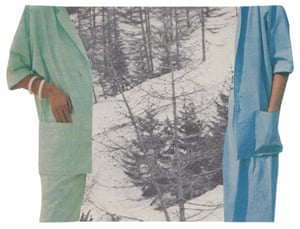 Until factories started to feel the effects of Covid-19, the global fashion business was producing 150bn items of clothing each year, far in excess of the needs of a global population of 7.9 billion. Clothing consumption globally was in 2017 projected to rise still more, by 63% by 2030, according to the Global Fashion Agenda and Boston Consulting Group. Who knows if those projections will be dented now that bricks-and-mortar shops are closed, orders have halted and supply chains have been stopped in their tracks? As factory orders dry up, the lowly paid, overworked garment workers without sick pay or any financial cushion are the ones who are paying the biggest price. The question is how, when the self-isolation and fear abates, we can use this temporary moratorium on production to correct the course of a carbon-guzzling and exploitative industry. We cannot continue down this path of unchecked overproduction, waste and human misery. 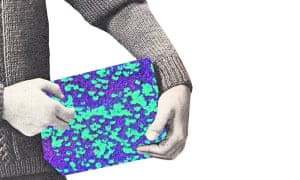 On Saturday, people around the world will be reflecting on the temporary decrease in CO2 as they turn off their lights at 8.30pm (local time wherever they are), to take part in Earth Hour. This annual environmental campaign by WWF will remind us that, according to the UN, we have only 10 years to keep global warming to 1.5C. This is something the academics Kate Fletcher and Mathilda Tham are acutely aware of. In their new report, Earth Logic Fashion Action Research Plan, they write: "The time frame of 10 years is the same as a child's time at school. One eighth of most people's lifetime, or 10 annual reports for a business. Consider what you, your family, community, workplace will do in the coming 10 years. Every moment will count." Their argument pivots around the idea that the only way to ensure we cut carbon emissions and end the cycles of overproduction and waste is to imagine a whole new system that places the Earth's needs before those of industrial growth. In a post-Covid-19 world, that's beginning to look slightly more feasible. "We propose planet before industry as a radical idea in which the health and survival of our planet Earth is given precedence over business interests," they write. The coronavirus pandemic has brought into stark focus the fact that business as usual can be stopped in its tracks. Anything, it seems, is now possible. According to the environmental journalist and broadcaster Lucy Siegle, who wrote the foreword to the Earth Logic report, this break is a "lifeline" to the industry and a "chance to reboot our efforts and change our course based on evidence and fact".  "Once we realise that the current system is always going to be self-limiting as there are finite resources, putting Earth first is the only option," says Fletcher, of the London College of Fashion's Centre for Sustainable Fashion. This is not about tinkering around the edges of the existing way of working, creating "sustainable" collections or clothing recycling schemes: Earth Logic attacks the very root of the problem: the existing economic model itself. This means a shift from production to the maintenance, use and care of existing clothes. It means reducing the volume of clothes we produce, and in turn, the amount of resources we are using. It means moving from globalised, tangled and unsafe supply chains to small production centres based around the needs and desires of local communities. "We need to find a role for industry scattered across communities," says Fletcher, with multiple local hubs for people to be educated, to make and repair their clothes. Patriarchy and growth logic are inextricably intertwined, says Tham. The same sorts of people are making the same sorts of decisions. According to Earth Logic, there would be respect for "fashion in non-western geographies. We can train the focus of fashion on supporting race and gender equality. Each perspective offers new models and practices for relating with fashion as well as broadening and diversifying the base of fashion expertise." 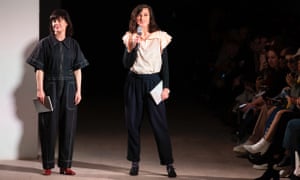 These are all points the next generation coming into the industry is demanding, too. "The questions students are asking are very different now," says Tham, who teaches fashion and economics students at the Linnaeus University, Sweden. How we design clothes must connect with the needs of society and the environment and work with them, not against them. We are seeing this happening with designers looking for ways to help make protective equipment and gowns for medical teams. These new positive role models must be allowed to lead the way forward. We have uncertain and painful times ahead. But Fletcher says: "It's about trying not to look away when the going gets hard." We are seeing that in times of real emergency, people's behaviour has to change. Even pressing pause on fashion's relentless cycle for a season (possibly two) will have a profound effect. Already, so much has changed. The cycle of fashion for fashion's sake has been broken. We must use this time to rethink how this industry can be redesigned with respect for the planet and the health of the people who work in it. "It's like turning a kaleidoscope and seeing new patterns emerge," says Tham. "There are so many possible patterns. Things can change very quickly when we have a new perspective. It is not impossible." |
| Posted: 27 Mar 2020 03:49 AM PDT  Ralph Lauren will produce 250,000 masks and 25,000 isolation gowns to help with COVID-19 efforts. The fashion house is also donating $10 million to various charities, including the World Health Organization COVID-19 Solidarity Response Fund, to assist with its response to the coronavirus outbreak. Ralph Lauren, Executive Chairman and Chief Creative Officer, said in a statement: "At the heart of our Company, there has always been a spirit of togetherness that inspires our creativity, our confidence and most importantly our support for one another. In the past weeks and months, that spirit has never wavered. "We believe that no matter who you are or where you are from, we are all connected. That is why we are taking significant action to help our teams and communities through this crisis." Patrice Louvet, President and Chief Executive Officer at Ralph Lauren, added: "We recognize that this is an unprecedented, multifaceted crisis which demands different responses for different needs in different places. That is why we are funding multiple activities to support our teams, our partners and our communities around the world." A Ralph Lauren store in Beverly Hills, California. Ralph Lauren said it would donate $10 million to various charities in response to the coronavirus pandemic. Gregg DeGuire/Getty Other fashion brands including Louis Vuitton, Canada Goose, Gap, and Crocs have also committed to helping the global response to the pandemic. LVMH, owner of Louis Vuitton, will use its perfume production lines to produce hand sanitizer, as the product faced a shortage in France. The gel will be given to French health authorities free of charge. Luxury brand Prada has also started producing 80,000 medical overalls and 110,000 face masks, while Gucci will donate €2 million ($2.2 million) to two campaigns and has produced one million facemasks, as will Balenciaga and Yves Saint Laurent. The latter three brands are owned by Kering, which has said it would be producing three million masks. Canada Goose said it would use its manufacturing facilities to produce medical gear, including scrubs and patient gowns, which it will then distribute to hospitals across Canada. Gap said it would use its factories to make gowns, masks, and scrubs, while Crocs is giving away its shoes to healthcare workers on the frontline of COVID-19. Healthcare workers can request a free pair of Crocs from its website. Inditex, which owns Zara, said it would be delivering equipment to Spanish health authorities weekly, and that it would make 300,000 masks, while Mango said it would donate two million masks to hospitals in Spain. Moncler said it would donate €10 million ($10.9 million) to help build a hospital in Milan with 400 intensive care units and Giorgio Armani donated €1.25 million ($1.4 million) to multiple Italian hospitals and The Armani Group said it would be producing hospital gowns. World Health Organization advice for avoiding spread of coronavirus disease (COVID-19) Hygiene advice
Medical advice
Mask and glove usage
|
| Man of Style Bryan Chan Talks Fashion, Heroes and Happiness - Vegas Magazine Posted: 26 Mar 2020 03:20 PM PDT The former reality show star, boy band member and Chippendales emcee-turned-beloved professional host knows how to put his best look forward.
Have you always cared about how you dress? Always. Before I had the means, I would look through store racks every weekend. It is the first part of your personality that people see before you open your mouth. Do you have any fashion regrets from your boy band days? I would definitely say my frosted tips. I was like Sonic the Hedgehog. I feel most confident when I wear… a suit. I put a lot of effort into pulling those looks together. Who is your style hero? Conor McGregor. He is impeccably tailored and always makes a very big, bold statement that is unapologetic. He will mix patterns and colors that are always so spot on. Name one of your most treasured possessions. My grandmother and I had a very special relationship, and I wanted for us to have a nice picture. We made this a huge deal, and when you ordered a picture package you got a little circle pendant with a picture in it. I carry it with me all the time, because it captures a moment in time with her. _______ keeps me fit. My daughter. I want to be here for as long as I can to see her get married, to see her have her own kid and to see her happy. What is your personal motto? Be humble and be kind. If you can live that way every day, everything else will fall into place.
Tags: Photography by: Jerry Metellus; Shot at The Cosmopolitan's Boulevard Penthouses |
| Designer adds stylish masks to fashion work - Texarkana Gazette Posted: 26 Mar 2020 07:17 PM PDT  Fashion designer Brandon Norman models one of his masks. (Submitted photo) Dallas-area fashion designer and Texarkana native Brandon Norman thought two weeks away from his day job might be relaxing, but now he's full-time busy making a hot commodity: masks. Norman works as an alterations specialist at Molly's Bridal Closet in downtown Dallas, but he also runs his own fashion business, Duhbuhlyoo, which focuses on custom formal wear like prom dresses. Norman has long possessed artistic and design prowess, so he's putting that to use creating useful, fashionable cotton masks for anyone who wants to buy them, complete with unique designs, whether it's sports with a Dallas Cowboys theme or an African print theme or more. In this time of the coronavirus pandemic, everyone from everyday people seeking to add a measure of protection to nurses on the front lines of critical care have purchased Norman's masks since he started making them this past Saturday. The designer also aims to match these purchases by donating masks to a Texarkana organization needing help. He's not sure who that will be yet, but he's considering hospitals or local urgent care centers. "Initially I wasn't planning on doing this," Norman admits, but a friend suggested he make a mask, post it online and see what happens. "Overnight I got like over 20 inquiries. They wanted masks in large numbers. It literally started Saturday. It hasn't even been a week yet." On average, he receives five to 10 requests per hour, and since he started he's made between 350 to 400 masks. Buyers hail from across the country, including pandemic hot spots. "I had people buy from New York and Brooklyn and the Bronx. And I shipped off yesterday to Oakland, California. I had three in L.A. and I am talking to a lady in Nebraska at a hospital. She's talking to her manager, seeing if she can get a large shipment to Nebraska's hospitals," Norman said. Some buyers are people who want a small measure of protection. A Texas police officer reached out about getting masks for the department. He's not promoting these masks as something to save the wearer from the coronavirus. "I'm just doing something stylish to keep you safe, a little bit," Norman said. His job let workers go home for two weeks, and the next day he started. "Since then it's been keeping me busy," he said. He thought the time off might help him prepare for prom season, but no such luck. Those dresses are largely on hold now. "This has been the busiest I think I've ever been," Norman said. No down time for him. As for those prom dresses, that's an uncertain situation, he said. He did one for a March prom. Some proms are canceled, while others are up in the air. "It's a weird situation right now," Norman said. As for dress making, he'll be going into his third official year of the work. Mask orders range from two or three to 10 or a dozen or more. Some customers are particular about what they want, but he has to work with what he finds with materials and resources. He's limited in a pandemic. The mask's outer layer is regular cotton, and for the inner layer primarily he uses a fusible middleweight fabric that acts as something of a stabilizer. "It's the closest to get to the N95 to be safe to use," Norman said. The inner layer acts as filtration fabric. His masks are washable. Norman's been getting the word out via Facebook. He has two pages under the names Be Norman (his personal account) and Duhbuhlyoo (his fashion business account). Masks sell as follows: one for $15, two for $20 and three for $25 with anything more at $9 each. Orders can be placed via his email, [email protected] He'll be matching the mask sales with a donation. He'd like to hear from an organization here in Texarkana that may need masks donated. "I feel like the masks are more beneficial than money, at this point," Norman said. (More info: [email protected] Or find Brandon Norman's personal or business pages on Facebook, names noted above.) |
| From silver wigs to sheriff badges: this week’s fashion trends - The Guardian Posted: 27 Mar 2020 12:00 AM PDT Going upFrancesca Bellettini Sure, the chief exec has increased Saint Laurent earnings. She's also serious hairspo for the curl-inclined. Time and tide Launching 1 April, Triwa's new range of watches are made from recycled ocean plastic, in colours including "seaweed" (green) and "seal" (grey). Timely! Silver From wigs to walls to balloons, pay homage to Warhol's favourite colour until the Tate's exhibition reopens. Winemaking Vegan leather alternative Vegea™ – featured in H&M's recently launched SS20 Conscious Exclusive collection – can be made from the byproduct. Cheers to that! Sheriff badges The Versace version, we mean, featuring a Medusa head motif. Law enforcement… but make it fashion? 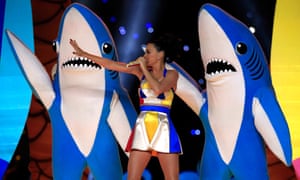 Going down'Micro bag' We're bringing back "reticule", the 18th-century name for a small handbag. Left Shark Replaced by Right Bat, after Katy Perry's batty show at the Women's Cricket World Cup final in Oz. 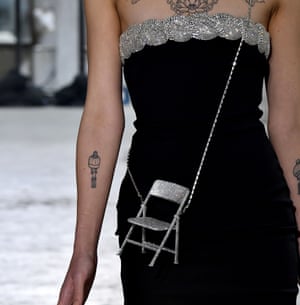 Destiny's Child Now terrifying, thanks to the trailer for the latest Candyman film. Say my name, say my name… Sitting pretty Models at Area's AW20 show accessorised with bedazzled mini chairs on chains. That's right, chairs on chains. Babyccinos Kid's herbal tea range Small & Wild is now in Fortnum & Mason. Start 'em young. This article contains affiliate links, which means we may earn a small commission if a reader clicks through and makes a purchase. All our journalism is independent and is in no way influenced by any advertiser or commercial initiative. By clicking on an affiliate link, you accept that third-party cookies will be set. More information. |
| You are subscribed to email updates from "fashion" - Google News. To stop receiving these emails, you may unsubscribe now. | Email delivery powered by Google |
| Google, 1600 Amphitheatre Parkway, Mountain View, CA 94043, United States | |


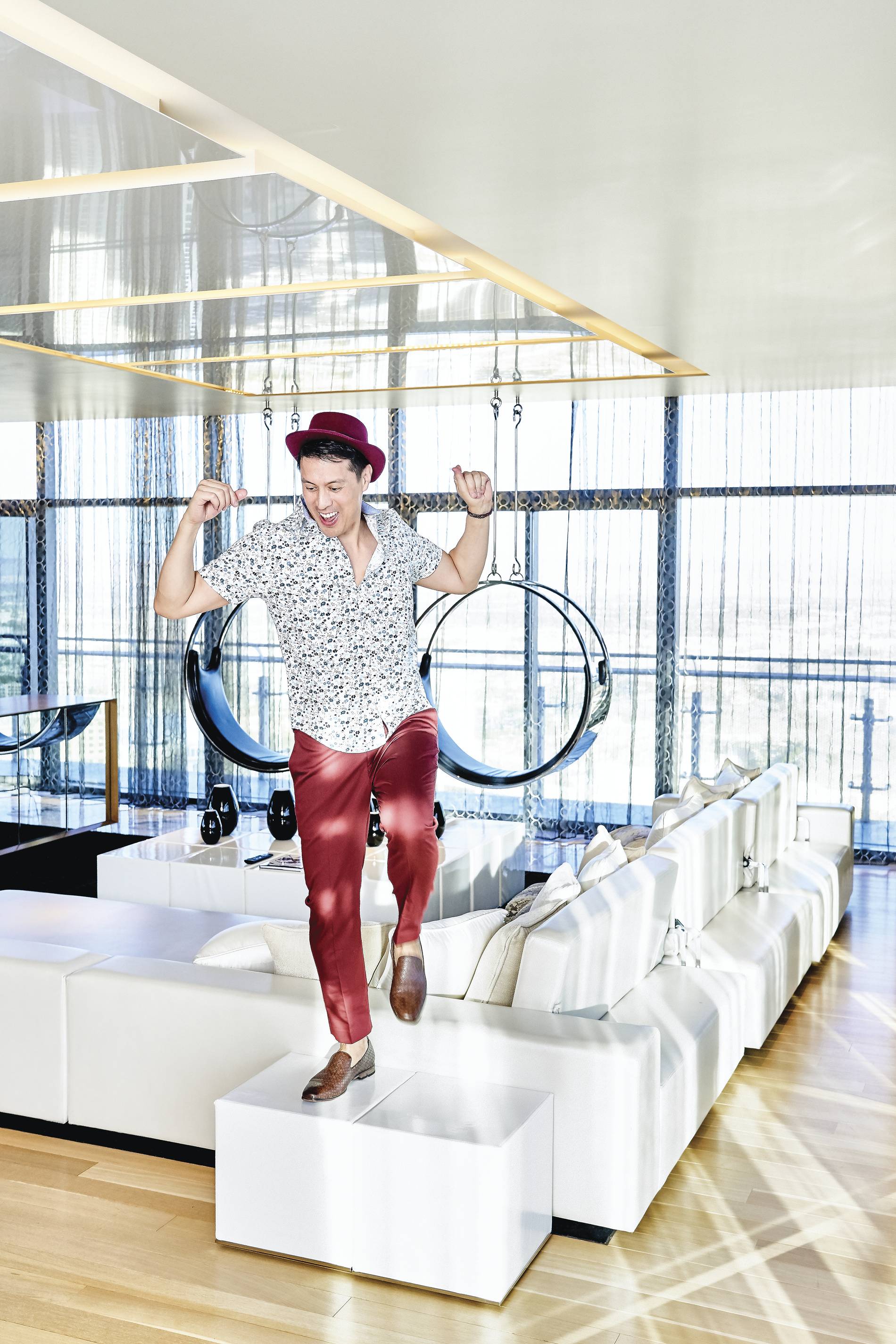




0 Yorumlar